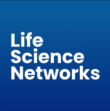ADC or Antibody-Drug Conjugate is an innovative class of biopharmaceutical drugs that has the potential to revolutionize cancer treatment. ADC is a type of targeted therapy that combines the specificity of monoclonal antibodies (mAbs) with the potent cytotoxic effects of chemotherapy drugs. This unique combination allows for selective delivery of toxic payloads to cancer cells while minimizing damage to healthy cells.
How does ADC work?
The ADC technology works by attaching a cytotoxic drug to a monoclonal antibody. Monoclonal antibodies are proteins that are designed to specifically recognize and bind to cancer cells. Once the antibody binds to the cancer cell, the ADC is internalized into the cell, where the cytotoxic drug is released and kills the cancer cell. This targeted approach minimizes damage to healthy cells and reduces the side effects associated with traditional chemotherapy drugs.
Development of ADCs in the Pharmaceutical Industry
The development of ADCs is a complex process that involves multiple stages, including target identification, antibody selection, linker and payload optimization, and preclinical and clinical testing. The success of ADC development depends on the selection of the right target, antibody, linker, and payload.
The pharmaceutical industry has made significant progress in the development of ADCs over the past decade, with several ADCs gaining FDA approval for the treatment of various cancers. Some of the FDA-approved ADCs include Adcetris® (brentuximab vedotin) for Hodgkin lymphoma and anaplastic large cell lymphoma, Kadcyla® (ado-trastuzumab emtansine) for HER2-positive breast cancer, and Polivy® (polatuzumab vedotin-piiq) for diffuse large B-cell lymphoma.
Advantages of ADCs
ADCs offer several advantages over traditional chemotherapy drugs. Some of the key benefits of ADCs are:
- Targeted Approach: ADCs target cancer cells specifically, minimizing damage to healthy cells and reducing side effects.
- Enhanced Efficacy: ADCs deliver a higher concentration of the cytotoxic drug to the cancer cells, increasing the efficacy of the treatment.
- Dose Optimization: ADCs allow for dose optimization, which means that the drug can be administered at higher doses than traditional chemotherapy drugs, improving treatment outcomes.
- Personalized Medicine: ADCs can be tailored to target specific types of cancer cells, making them a potential option for personalized medicine.
Conclusion
ADCs represent a promising new class of targeted therapies that have the potential to revolutionize cancer treatment. The combination of monoclonal antibodies and cytotoxic drugs allows for selective delivery of toxic payloads to cancer cells, while minimizing damage to healthy cells. The pharmaceutical industry has made significant progress in the development of ADCs over the past decade, with several ADCs gaining FDA approval for the treatment of various cancers. With continued research and development, ADCs hold the potential to become a major tool in the fight against cancer.
